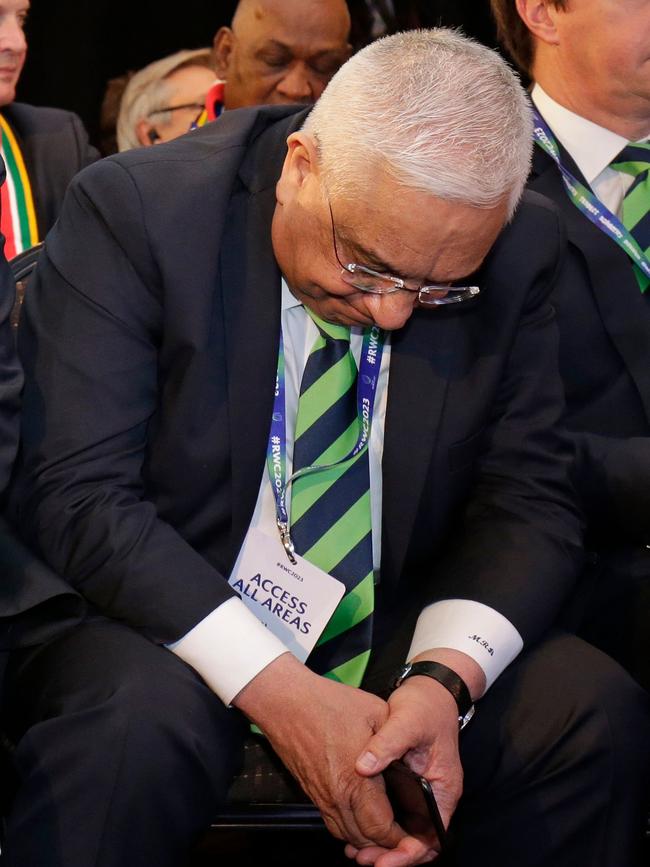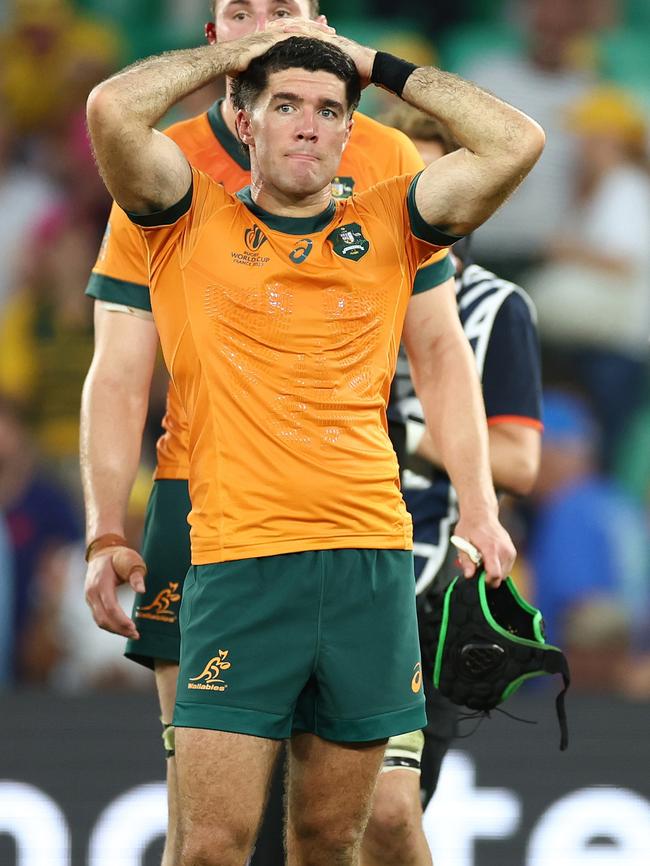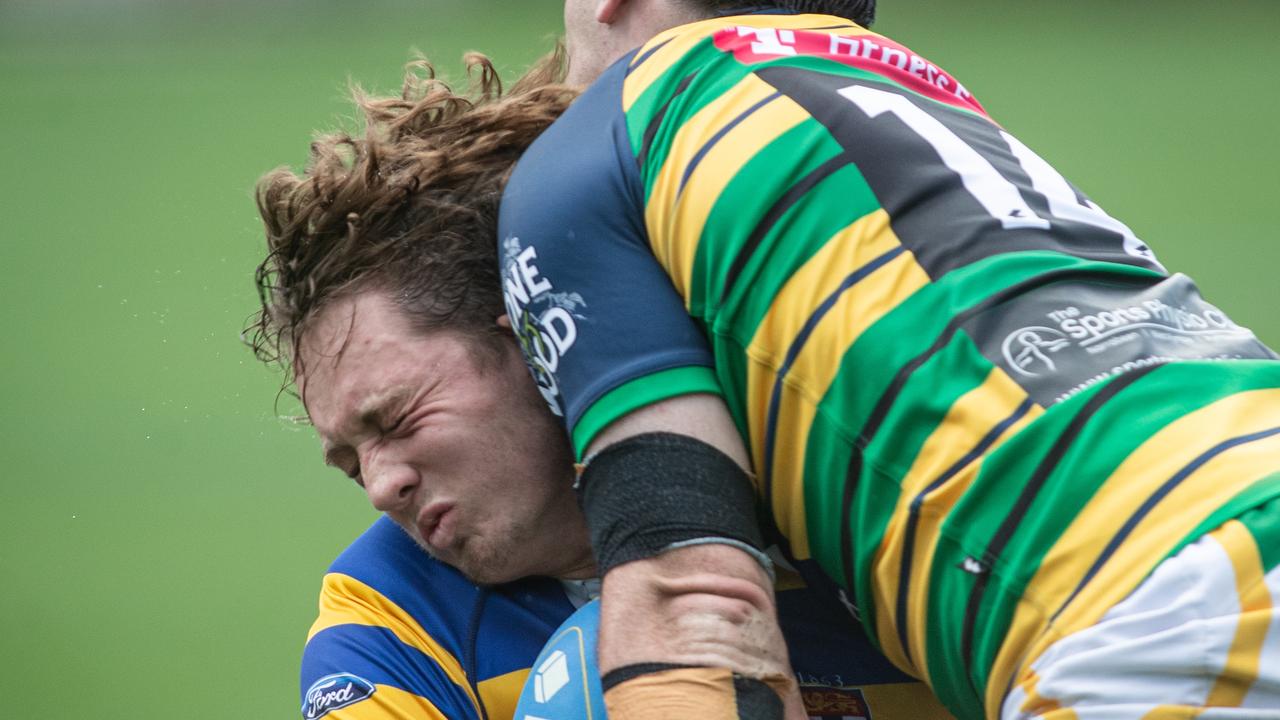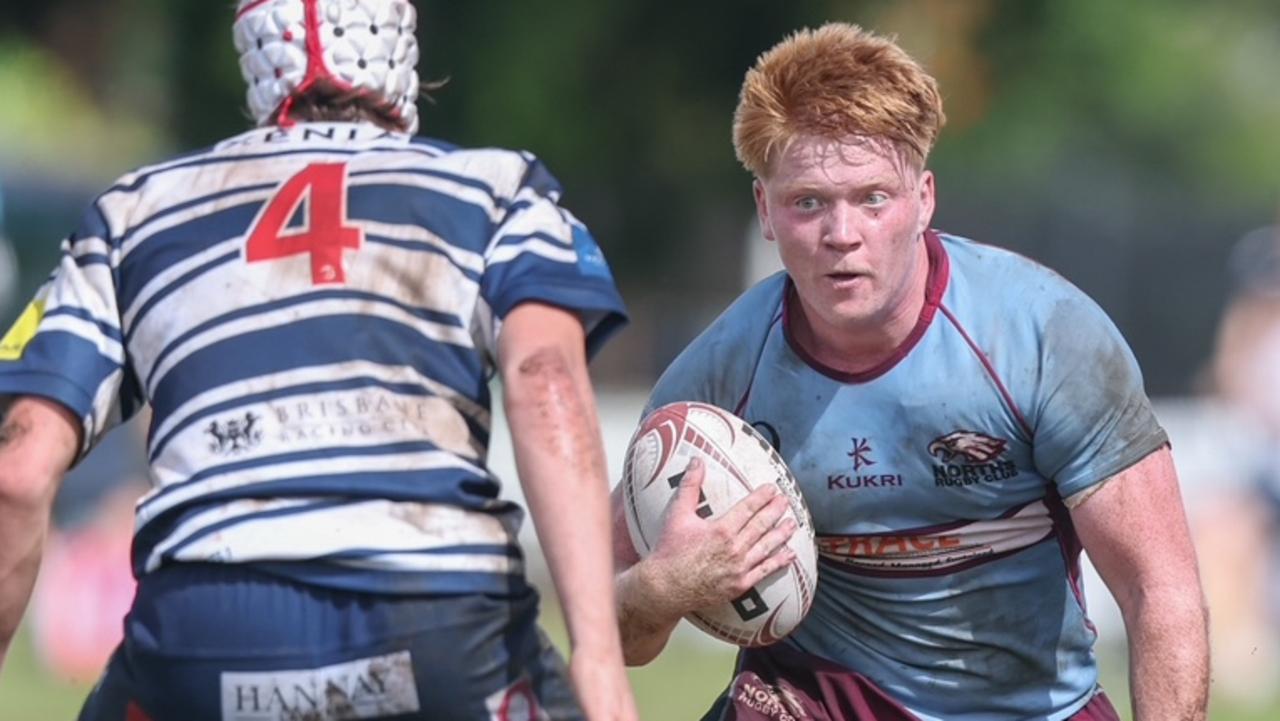South African Rugby boss Mark Alexander says finger pointing must end to save Aussie Rugby
After the Wallabies’ disastrous World Cup campaign and its subsequent chaotic fallout, the boss of South African Rugby has thrown his weight behind Australia’s beleaguered leaders.
Rugby
Don't miss out on the headlines from Rugby. Followed categories will be added to My News.
Evoking the memory of Nelson Mandela and the supporting role he played in inspiring the greatest World Cup final ever staged, the boss of South African Rugby has thrown his weight behind Australia’s beleaguered leaders.
Mark Alexander, who has largely been credited with saving South African rugby after it was on its knees in 2016, says he understands the frustration Australian rugby fans are feeling after the Wallabies’ dismal showing at the current World Cup in France.
But the South African Rugby president warned that any knee jerk reaction to blame a scapegoat was counter-productive because sacking the men trying to change things would only make matters worse.
“I really feel their pain but now is not the time to play the blame game,” Alexander told this masthead.
“All this finger pointing will not help the organisation go forward
“There will always be people on the side making a lot of the noise but it’s the man in the arena that counts.
“You need to let them get on with what they need to do because it’s easy to criticise on the outside before you walk in the shoes of those who are running the organisation.”


Alexander’s reference to the man in the arena was not accidental.
It refers to a passage from a famous address that US President Theodore Roosevelt delivered at Paris in 1910, where he said it’s not the critics who count but rather the people making things happen.
Mandela gave a copy of the speech to Springboks captain Francois Pienaar before the start of the 1995 World Cup, then turned up to the final – won by South Africa – wearing the captain’s jersey.
Immortalised in the Hollywood film Invictus, it became an everlasting symbol of reconciliation between black and white South Africans and resonates with athletes the world over today.
The Springboks won a second World Cup in 2007 but sporting success is forever fragile and things started to fall apart soon after then.
At the 2011 World Cup, the Boks were knocked out in the quarter-finals by the Wallabies.
And in 2015, they suffered a shock defeat to Eddie Jones’ Japan, a result which was also turned into a film.
By 2016, South Africa rugby was in turmoil. The team was losing regularly, four Springbok captains retired at the same time, the SA Rugby president quit and the code was under enormous pressure from the government because it had failed to meet its transformation targets to increase the number of black players in the game.
That; when Alexander stepped in and made a series of strategic changes, many that were highly unpopular at the time, including the reappointment of Rassie Erasmus as head coach a year before the 2019 World Cup.
Not dissimilar to Jones, Erasmus is a brash personality who makes big calls and he immediately saw South Africa needed a major overhaul.
So he named 13 new caps for his first test and appointed Siya Kolisi as the Springboks’ first black captain.

It wasn’t all smooth sailing but a year later, South Africa won the World Cup for a third time, beating England in the final.
Now Alexander believes Australia can also turn things around if they are patient and keep faith in chief executive Phil Waugh and chairman Hamish McLennan, who have both made major changes that have not been liked by everyone.
“There’s nothing’s wrong with Australian rugby. You have the players there that can deliver but you need to make one or two tweaks,” Alexander said.
“You have a chairman that understands business and a CEO who knows the game so now is not the time to play the blame game.
“In 2016, South Africa was in a really dark place … and that was our wake up call to start doing things very differently.
“We had a broken system that we had to fix and it took time, but I think it’s bearing fruit now.
“I think Rugby Australia will turn things around because you have the manpower and the right people there but you need to back them and not waste a good crisis.”
Alexander said the single most important thing for Rugby Australia going forward was to create a centralised contracting system, similar to Ireland’s, which is widely regarded as the best in the world.
One of the benefits of centralisation is that it allows the national body to strategically place players at teams where they can learn the skills they need to help the Wallabies.
“Centralised contracting is an excellent idea. You just have to look at Ireland,” Alexander said.
“Australia should do that because we all need a strong Australia and we also hurt when Australia is hurting.
“We started professional rugby with Australia and New Zealand many years ago and if one of our partners is struggling then we struggle as well and feel the pain.
“But we just need to give Australia time. They will come right if they go back, draft a plan and stick to it.”

It’s not just the South Africans backing Rugby Australia to bounce back,
International Olympic Committee vice-president John Coates is currently in Paris for the World Cup semi-finals and told this masthead he also supports McLennan and Waugh’s plans to adopt a centralised system.
“Different sports that have centralised programs have gone well,” Coates said.
“They’ve got their constitution under control, Rugby Australia, but I do think they need a centralised program to give some direction to all the states.
“You’ve got to have a centralised direction in high performance sport.
“I’m a great supporter of Hamish, I’ve known him for a long time, and I’m also a great supporter of Phil Waugh.
“I don’t know what states aren’t on board yet but I do think you need to have a centralised direction for high performance.”
More Coverage
Originally published as South African Rugby boss Mark Alexander says finger pointing must end to save Aussie Rugby





